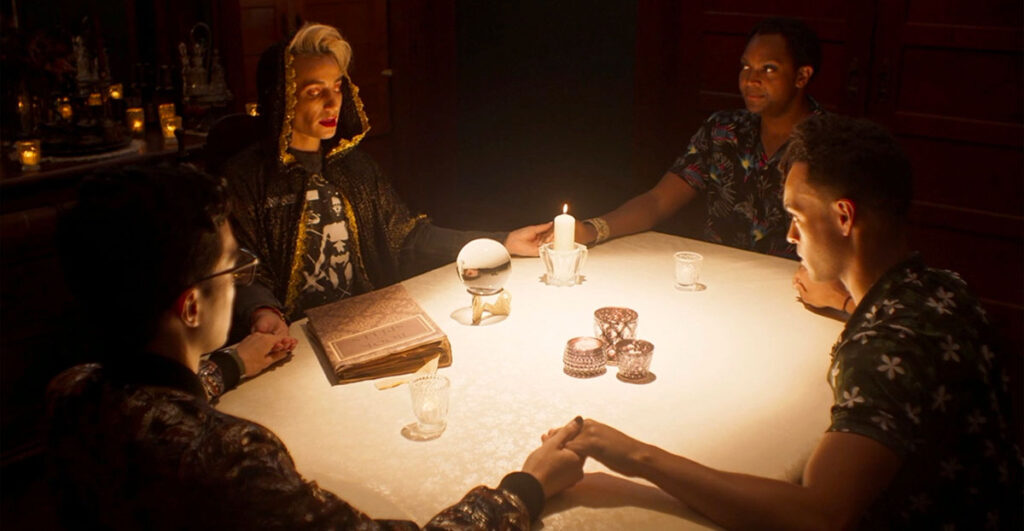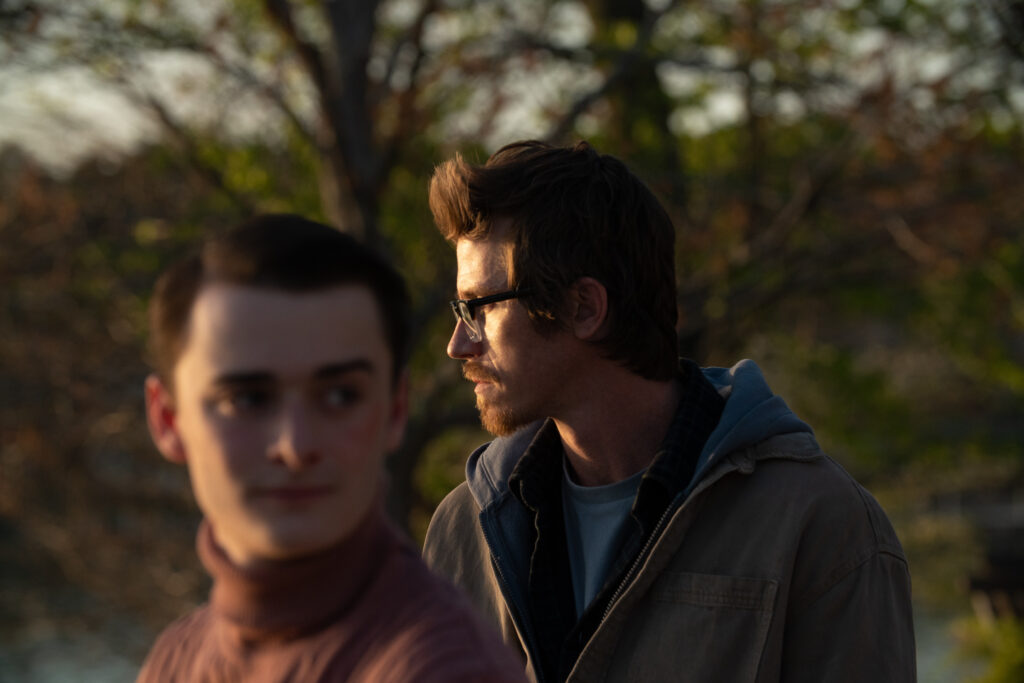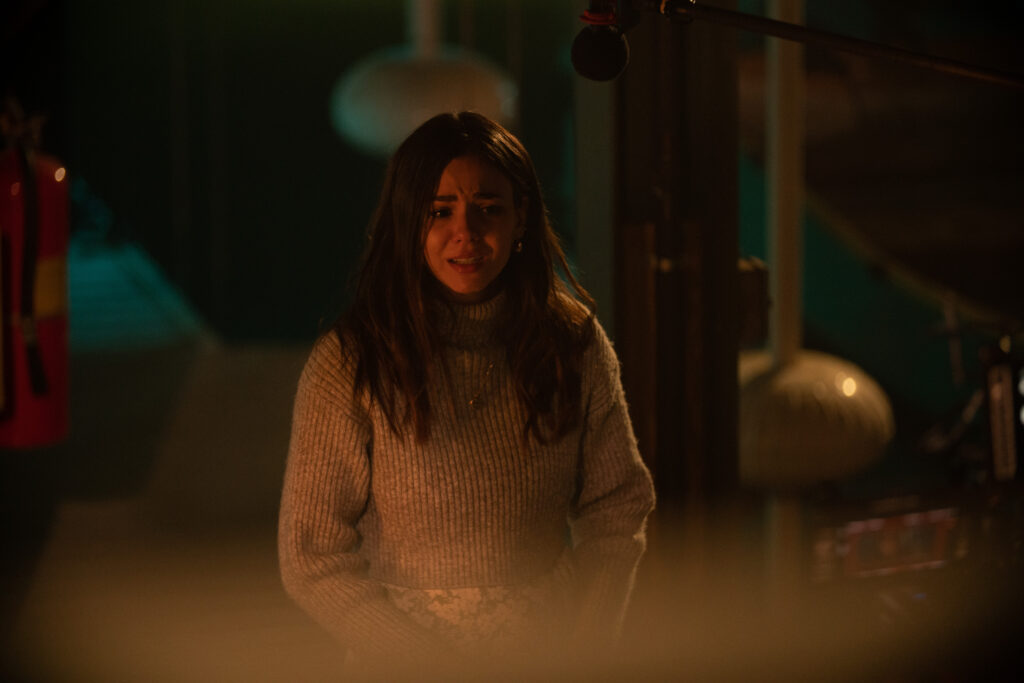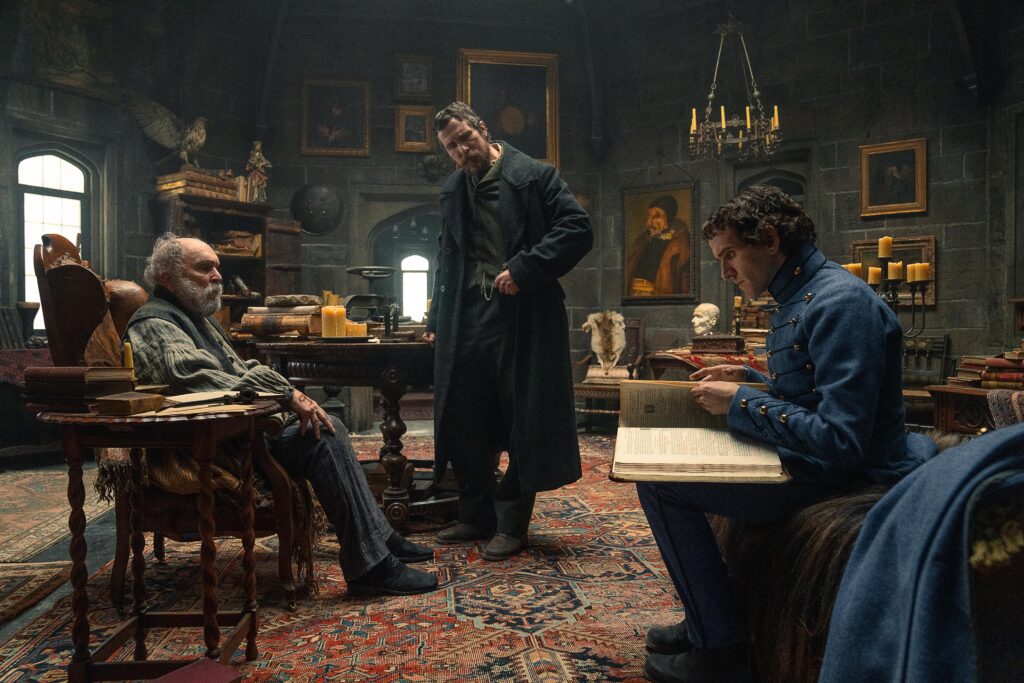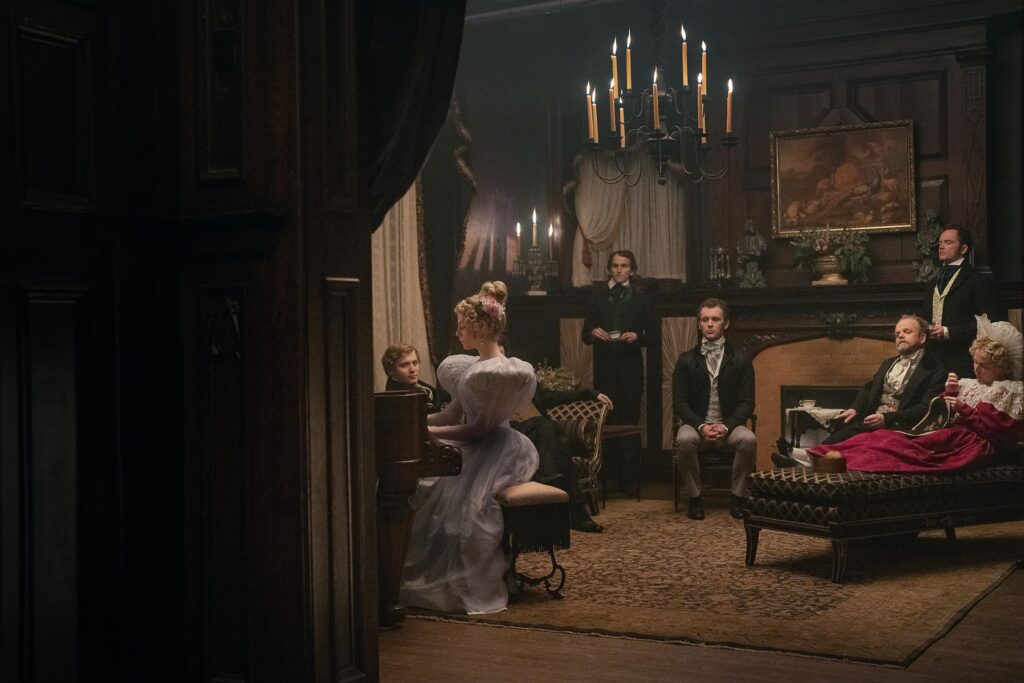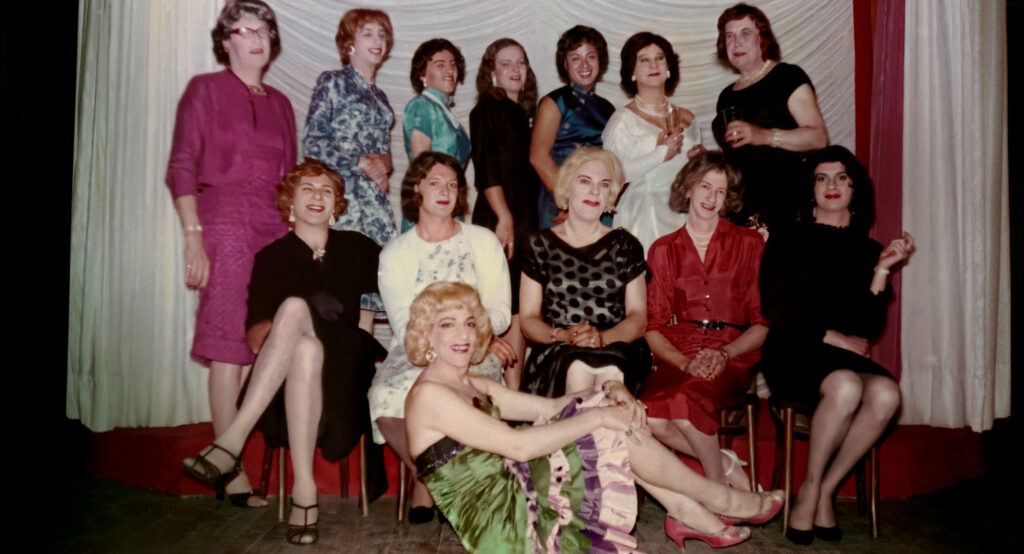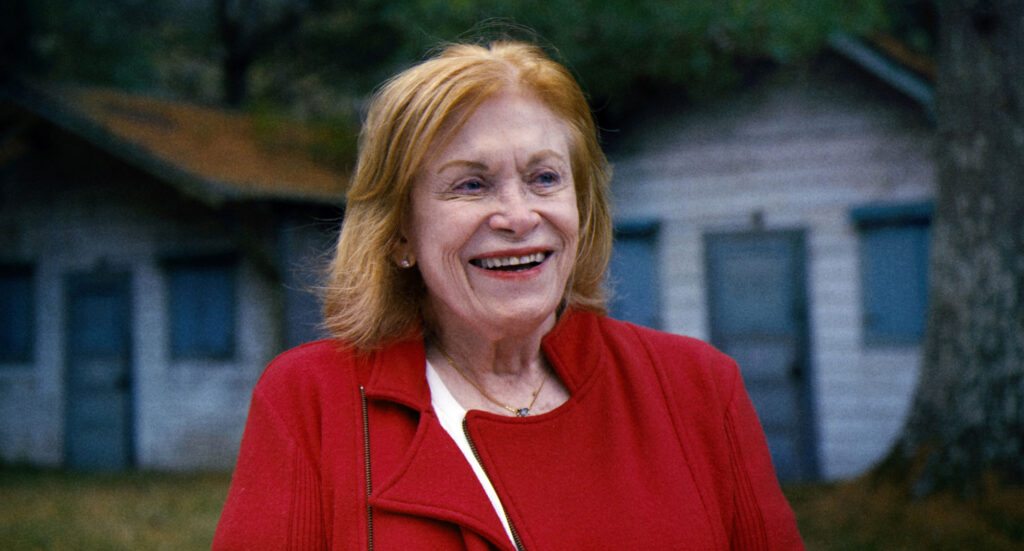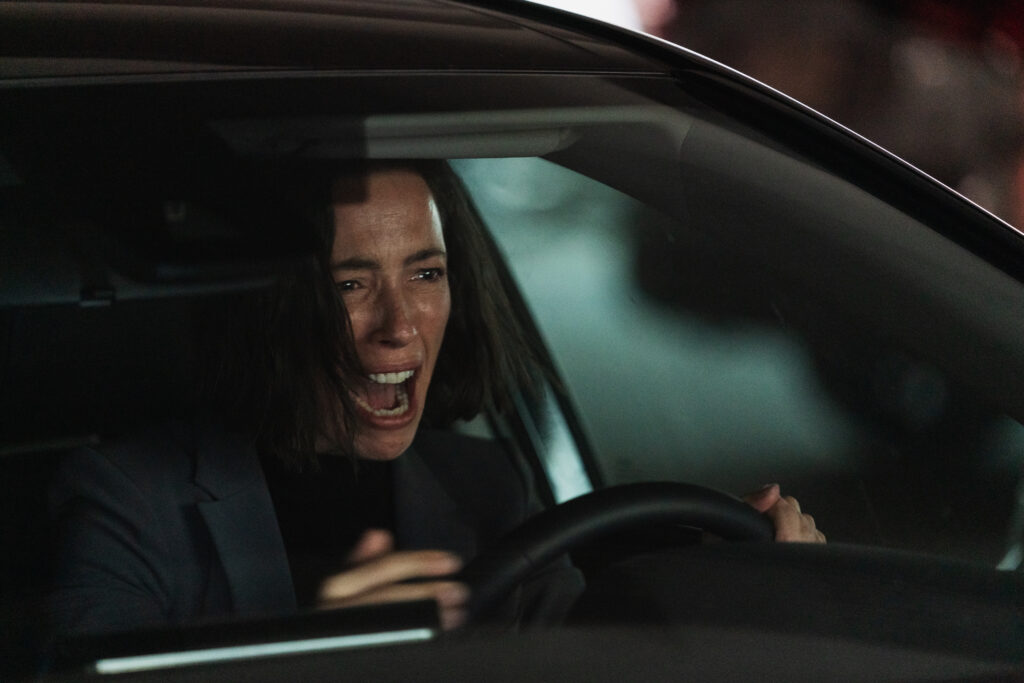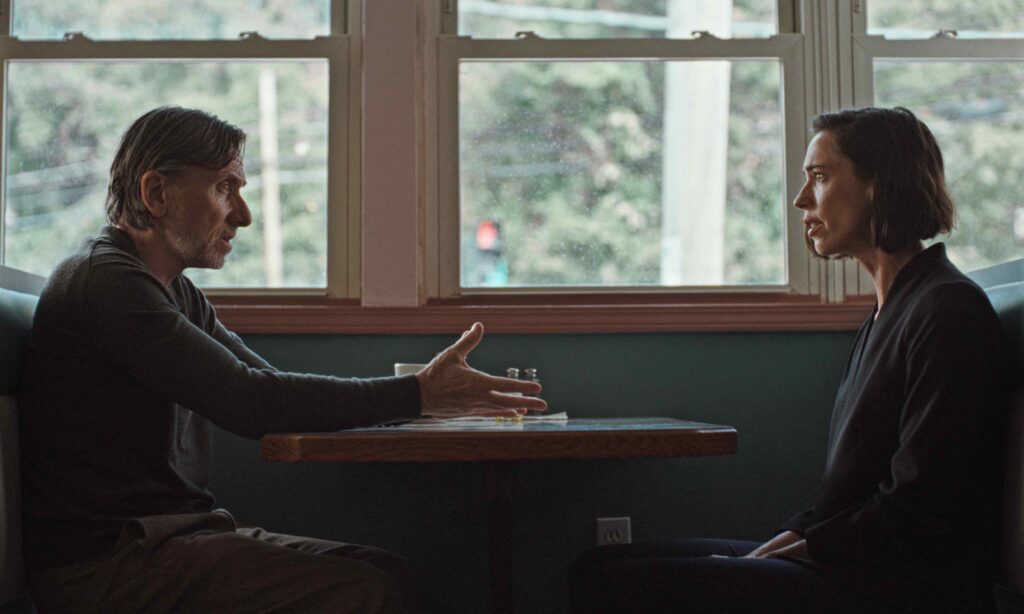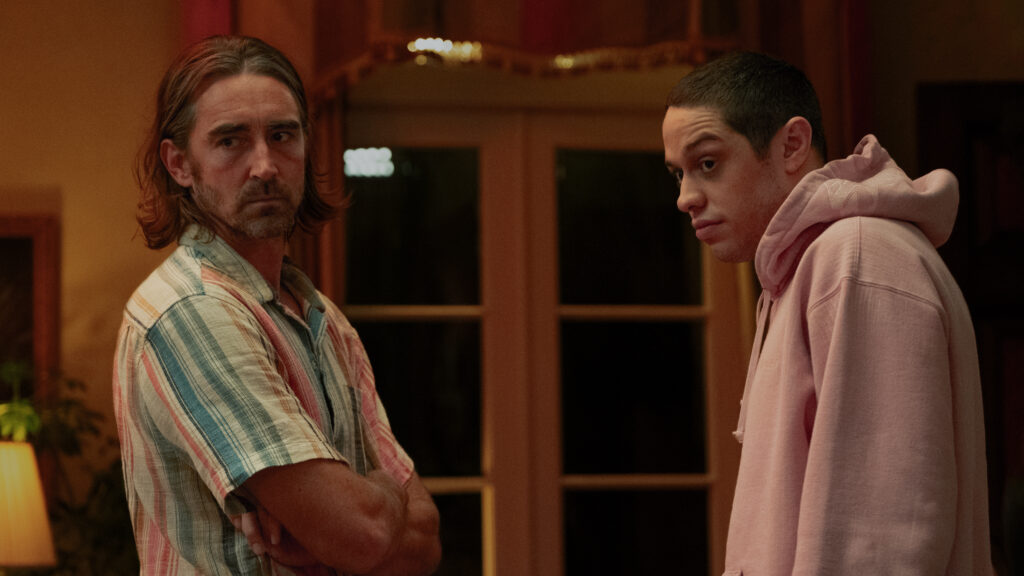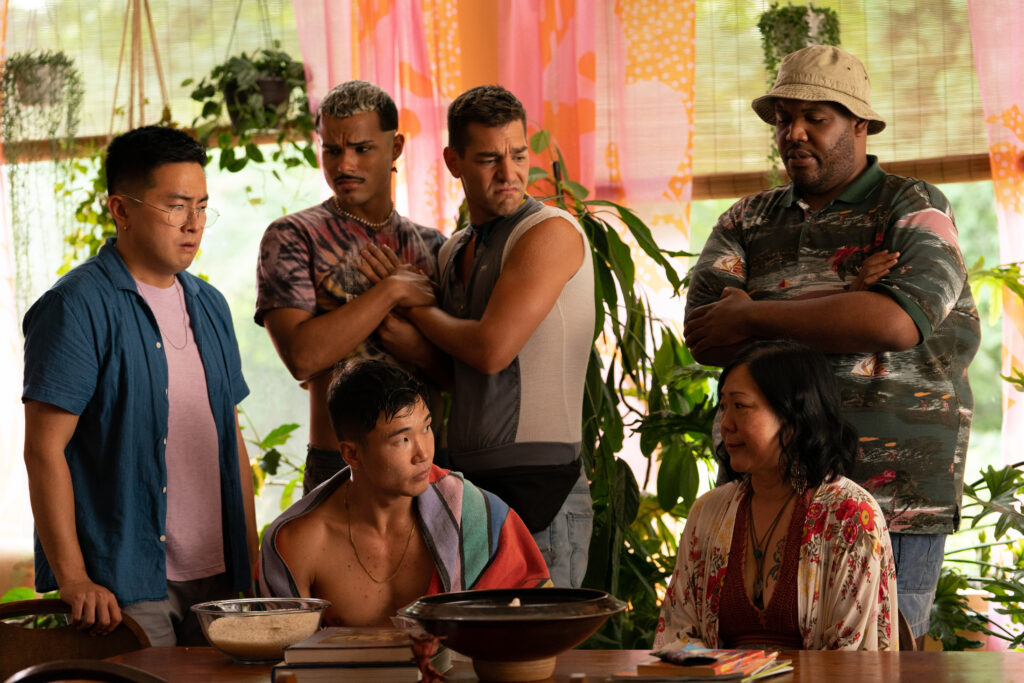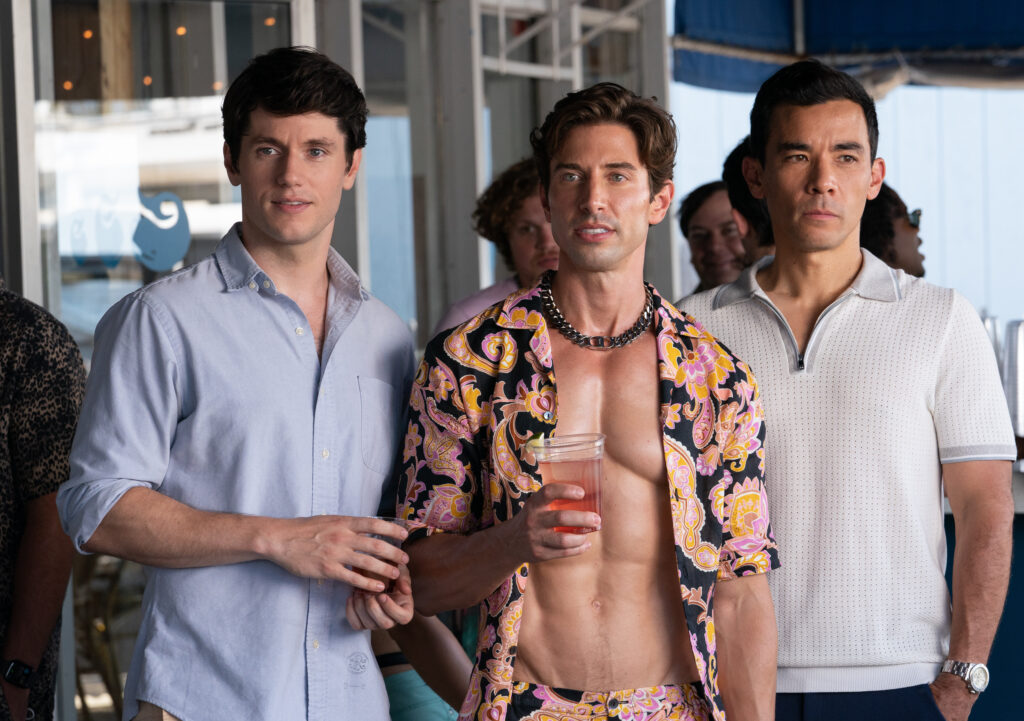December 24, 2023
by Carla Hay
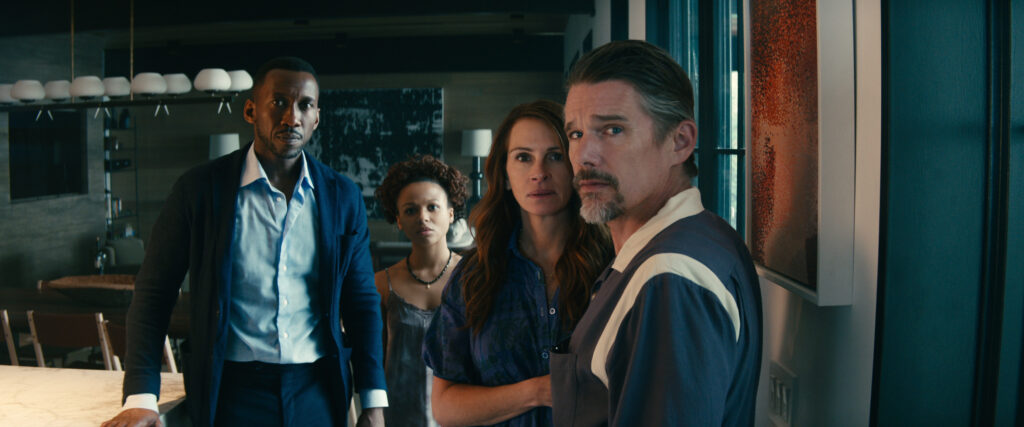
“Leave the World Behind” (2023)
Directed by Sam Esmail
Some language in Spanish with no subtitles
Culture Representation: Taking place in New York state, the sci-fi/dramatic film “Leave the World Behind” (based on the 2020 novel of the same name) features a predominantly white cast of characters (with some African Americans, one Latina and one Asian person) representing the working-class, middle-class and wealthy.
Culture Clash: A group of people in a quiet Long Island neighborhood have different reactions when they find out that they are experiencing some kind of apocalypse.
Culture Audience: “Leave the World Behind” will appeal primarily to fans of the movie’s headliners and apocalyptic dramas that leave room for elements of mystery.
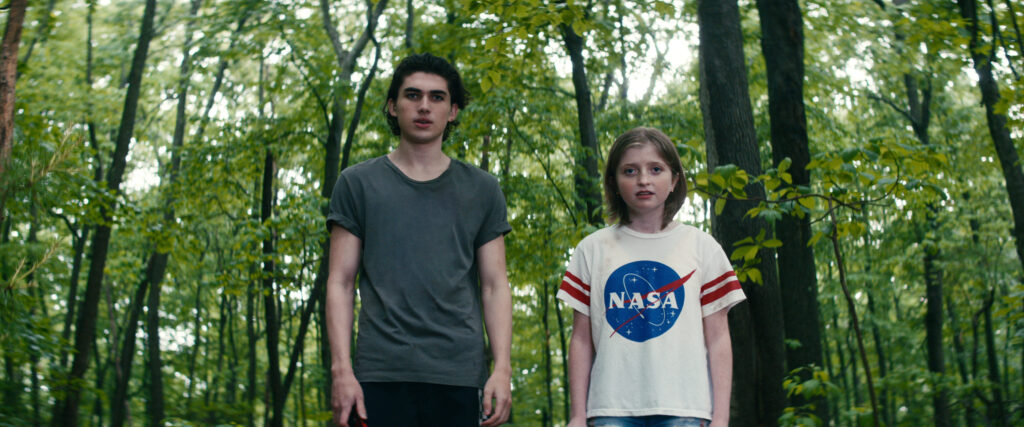
The apocalyptic drama “Leave the World Behind” isn’t really about any faraway, unknown enemies responsible for the attack. It’s more about how people respond to a crisis when they think enemies are closer to home. The movie’s story might frustrate viewers who want a more definitive ending, but “Leave the World Behind” is supposed to be an observational commentary on how people can have very different reactions if they think they are experiencing an apocalypse.
Written and directed by Sam Esmail, “Leave the World Behind” is based on Rumaan Alam’s 2020 novel of the same name. It’s a mostly suspenseful movie that occasionally drags and gets repetitive in some areas when it becomes obvious that certain characters are stuck being where they are during a massive cyberattack that sends things into chaos. Viewers will get more satisfaction from watching “Leave the World Behind” if they don’t expect the movie to answer the question of how the cyberattack happened. It’s more important to see “Leave the World Behind” for what it is: an exploration of why the characters say and do the things they do during this attack.
“Leave the World Behind” begins by introducing the four-person family whose weekend vacation is disrupted by this mysterious catastrophe. Upper-middle-class spouses Amanda Sandford (played by Julia Roberts) and Clay Sandford (played by Ethan Hawke) live in New York City with their two children: 16-year-old Archie Sandford (played by Charlie Evans) and Rosie Evans (played by Farrah Mackenzie), who’s about 12 or 13 years old. Clay wakes up one morning to find out that Amanda has spontaneously rented a luxury vacation home on New York’s Long Island for the family to have a getaway weekend.
Amanda, who is an ad agency executive, is domineering and has a prickly personality. Early on the movie, she tells Clay one of the main reasons why she wants to have this getaway trip: “I hate people.” Clay, who is a book author, is friendly and easygoing. Amanda tends to think the worst of people, while Clay is much more open-minded and optimistic.
Archie and Amanda are generally well-behaved adolescents, but they have their occasional bratty or rebellious moments. Archie spends a lot of time playing video games, while Amanda is currently obsessed with watching all of the episode of the sitcom “Friends” in chronological order. Amanda is generally more curious than Archie is, but she is also more high-strung and more likely to get agitated.
When the Sandfords arrive at the house, which is near a beach, things seem to be going very well. Rose does some grocery shopping at a nearby store and notice a man in the parking lot. He’s stocking his truck with a lot of water and canned goods, as if he’s preparing for an emergency. Viewers later find out that this man is a contractor named Danny (played by Kevin Bacon), who is indeed a “doomsday prepper.”
It isn’t long before bizarre thngs start to happen. The Sandfords are at a beach that is fairly crowded when an oil tanker slowly heads toward the beach and then crashes on the beach. Luckily, no one on the beach gets hurt, but it appears to be a ship that got there on its own, since no one is inside the ship. The beach patrol employees have no answer for this weird incident.
Later, when the Sandfords are back at the house, Amanda notices that there is no longer any WiFi service and phone service in the house. Clay and Amanda also notice a mother deer and her kid in the house’s backyard. As already shown in the trailers for “Leave the World Behind” the Sandfords will be seeing a lot more deer in the near future. Observant viewers will notice that the appearances of groups of animals are supposed to be connected to the high-pitched noises that the people in the movie end up hearing.
Later that night, sometime after midnight, the Sandfords get some unexpected visitors, who knock at the front door. The kids are asleep, so Amanda and Clay open the door and find two strangers who are dressed like they just came from a formal event: George “G.H.” Scott (played by Mahershala Ali) politely introduces himself and his daughter Ruth (played by Myha’la, also known as Myha’la Herrold), who’s about 18 or 19 years old. (In the “Leave the World Behind” book,” Ruth is G.H.’s wife.)
G.H. says he’s sorry for showing up unannounced so late at night, but he explains that he’s the owner of the house. G.H. explains that he and Ruth were attending a symphony concert in New York City, which is experiencing a sudden blackout. They live in a 14th-floor apartment, but G.H. has a bad knee and would have to walk up a flight up stairs to get to the apartment, since the building’s elevator isn’t working during the blackout. Instead, they decided to drive to their Long Island home and spend the night there.
Amanda knows that she communicated by email with the house’s owner, but she never saw a photo of him before she rented the place. Her immediate reaction is to be suspicious. She expresses doubt and surprise that G.H. owns the house. G.H. later mentions that he’s a financial manager and that he’s owned the house for the past 20 years,.
Amanda’s reaction has racial undertones, since Amanda is white, and the Scotts are African American. Amanda doesn’t say it out loud, but she finds it hard to believe that black people could own this house. She’s reluctant to let them into the house, but Clay is much more trusting and gracious and lets G.H. and Ruth inside to continue the conversation.
Amanda gets even more suspicious when she asks G.H. to show his photo ID to prove who he says he is, but G.H. says he left his photo ID in the jacket he was wearing at the symphony. In the chaos of the blackout, he left the jacket behind at the venue. To prove that he at least knows the house, G.H. uses keys to open a drawer, where he takes out an envelope of cash.
G.H. and Ruth offer to stay in the basement during this unexpected visit. As an apology and to make up for the inconvenience, G.H. offers to give Clay and Amanda $1,000 in cash, which is half of the cost that Amanda and Clay paid for the weekend rental. Amanda still doesn’t G.H. and Ruth, but Clay convinces her to accept this deal.
In a private conversation that Amanda has with Clay, she says that G.H. and Ruth could be servants of the house’s owner, and this unexpected visit could be a set-up for a robbery. Clay thinks she’s being too paranoid. Because there is no WiFi and no phone service in the house, the Sandfords have no way of verifying what G.H. is saying.
There’s a period of time, early on in “Leave the World Behind,” when the movie keeps viewers guessing if there will be some kind of confrontation between Amanda and the Scotts. Ruth has immediately picked up on Amanda’s hostility, which can easily be interpreted as racial hostility. In response, Ruth is abrupt and sarcastic in communicating with Amanda.
There’s also apprehension behind Ruth’s demeanor. G.H.’s wife/Ruth’s mother is an art dealer who is away on a trip to Morocco. G.H. have been unable to reach her because of the blackout. And now, they’ve found out that there’s no communication services in their Long Island hom.
However, the WiFi service briefly comes back when Amanda gets news alerts on her phone that say there are cyberattacks happening. But the alerts soon disappear, and she wonders if she imagined what she saw. However, electricity still works in the house, and the TV news is showing that the United States in under a cyberattack from unknown sources. It isn’t long before the house loses electricity too.
Meanwhile, more strange things keep happening, some of which are revealed in the trailers for “Leave the World Behind.” Some of the movie’s visual effects look credible, while other visual effects look too much like the computer-generated imagery that it is. The Scotts and the Sandfords soon find out that the cyberattack has caused planes to crash. Although there are external forces that are causing the widespread disaster, the movie takes a very intimate look at how the some of the story’s main characters cause their own types of internal disarray through mistrust and fear.
“Leave the World Behind” also poses a familiar question that’s often found in stories where people are in life-or-death situations: “Will someone help strangers in need, or will someone only be concerned with helping loved ones?” The movie also shows how, when faced with the possibility of death, how people might see life differently.
The cast members’ performances aren’t award-worthy, but they are competent and believable. “Leave the World Behind” doesn’t follow the usual formula of having a warm-hearted mother for a family in crisis. Amanda is downright unpleasant and isn’t afraid to admit it. However, there are a few moments when some cracks appear in Amanda’s hard shell of a personality. These moments are among the best in “Leave the World Behind,” which isn’t about strong heroics during a crisis but what happens when people during a crisis feel they are their most vulnerable.
Netflix released “Leave the World Behind” in select U.S. cinemas on November 22, 2023. The movie premiered on Netflix on December 8, 2023.



